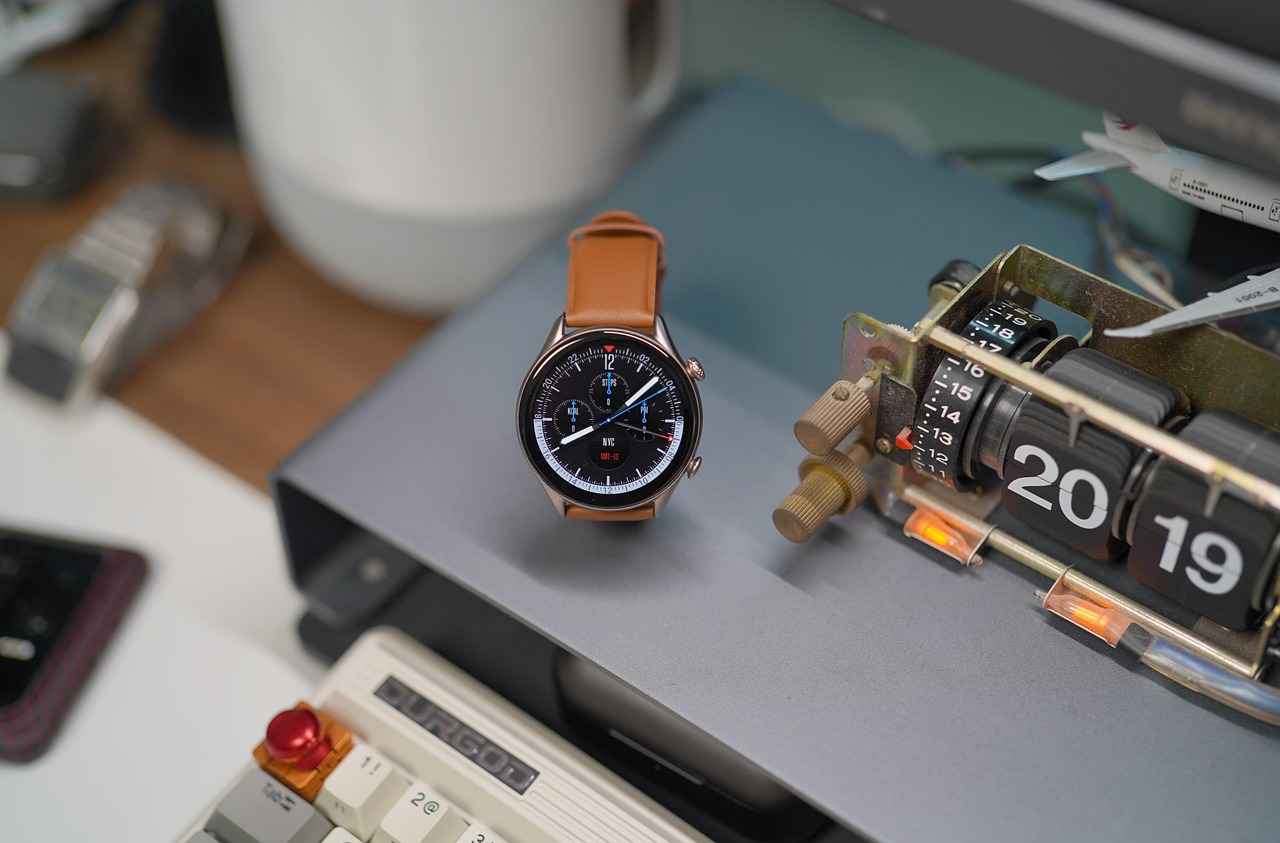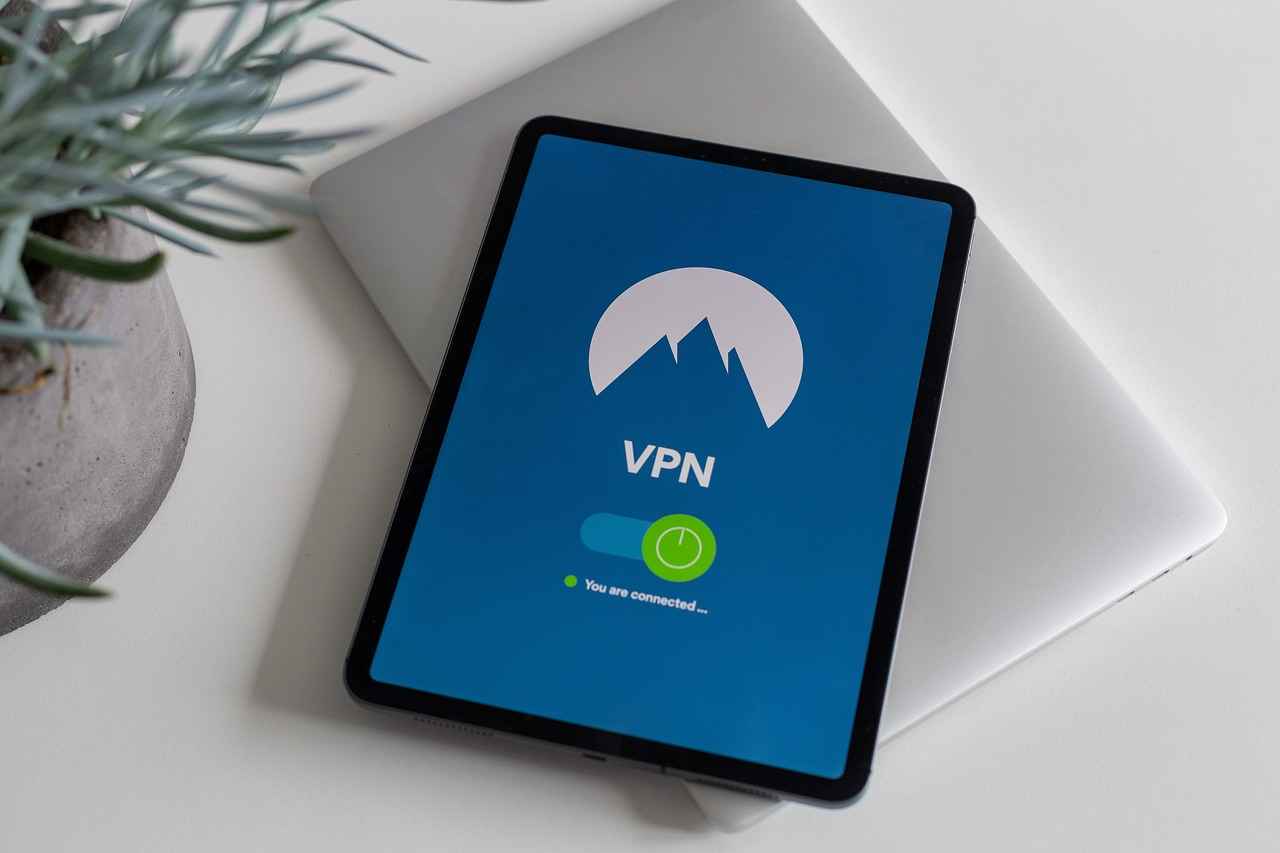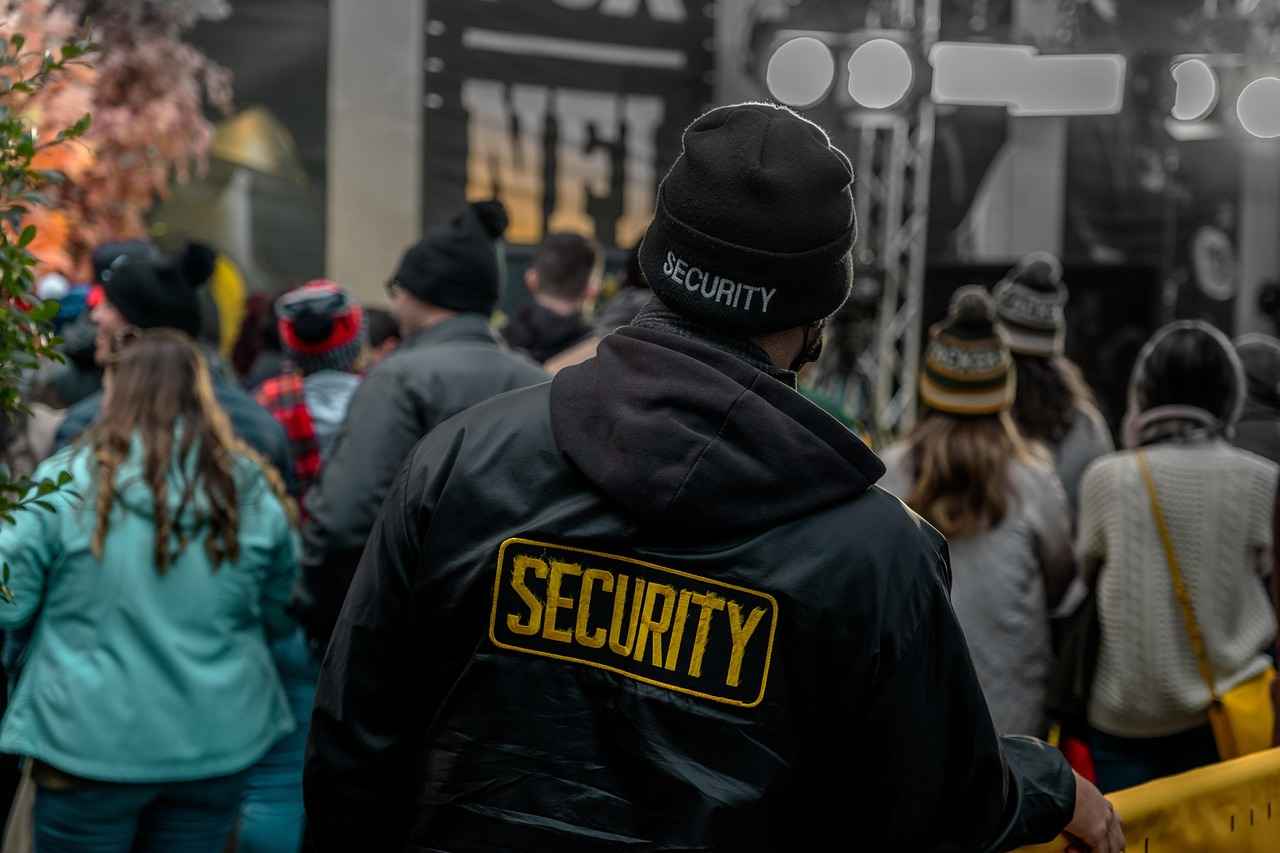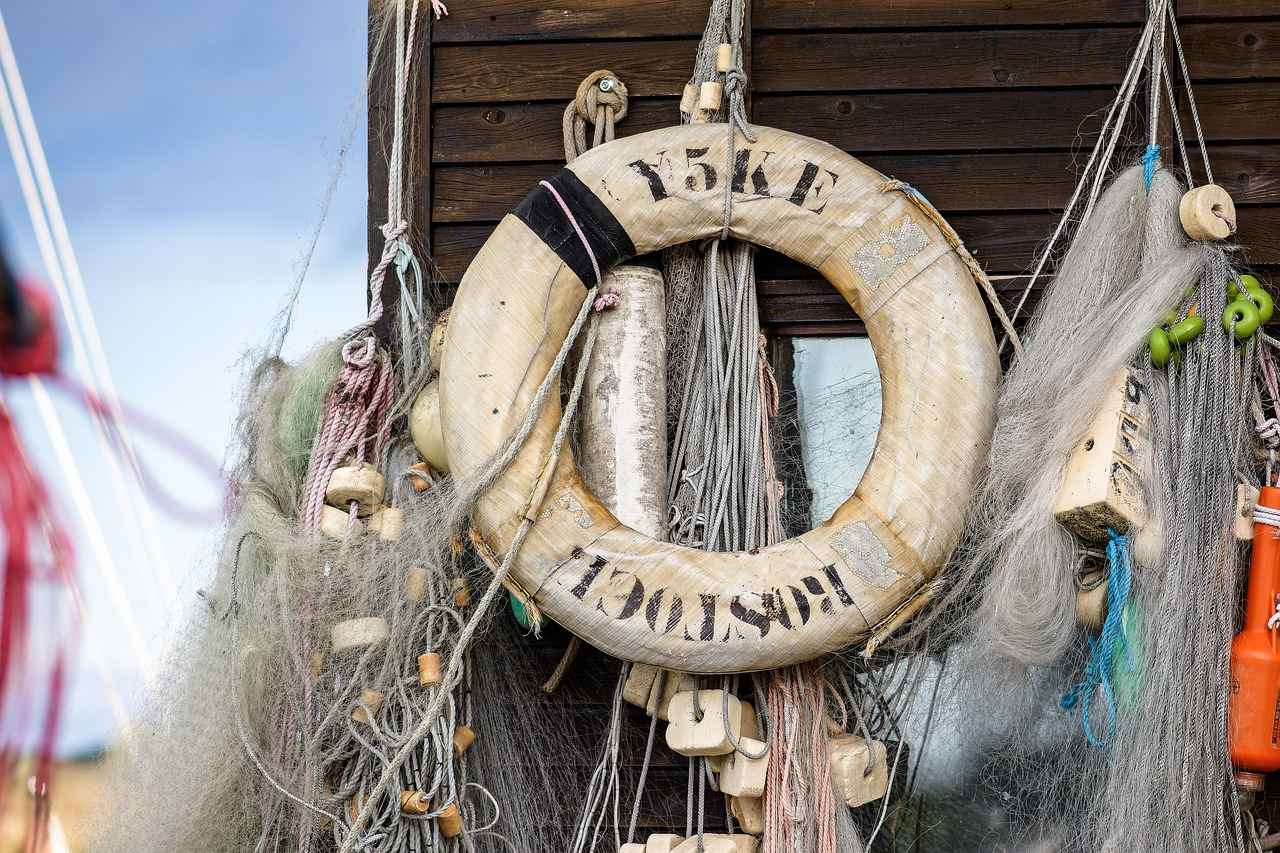This article delves into the best smart home devices designed to elevate your home security system. With the rise of smart technology, homeowners now have access to a plethora of devices that not only enhance security but also provide peace of mind. This guide offers insights into the features, benefits, and expert recommendations for creating a safer living environment.
1. Smart Security Cameras
Smart security cameras are vital for real-time monitoring of your property. They come equipped with features such as motion detection, night vision, and cloud storage options, allowing you to keep an eye on your home from anywhere.
2. Smart Doorbell Cameras
These devices enable you to see and communicate with visitors at your door via your smartphone. With features like two-way audio and HD video quality, they help deter potential intruders and provide a sense of security.
- Key Features: Motion alerts, cloud recording, and integration with smart home systems.
- Popular Brands: Ring, Nest, and Arlo.
3. Smart Locks
Smart locks eliminate the need for physical keys, offering keyless entry through smartphones or codes. They also provide features like temporary guest access and activity logs, which enhance security and convenience.
4. Smart Motion Sensors
These sensors detect movement and can trigger alerts or activate other devices, such as cameras or lights, creating a comprehensive security network throughout your home.
5. Smart Alarm Systems
Advanced alarm systems offer remote monitoring and customizable settings, ensuring your home remains protected at all times. Homeowners can choose between self-monitoring or professional monitoring options.
6. Smart Lighting Solutions
Smart lighting can be programmed to simulate occupancy, which is particularly useful when homeowners are away. This feature, combined with integration into security systems, enhances the overall effectiveness of home security.
Conclusion: Building a Comprehensive Smart Home Security System
Integrating various smart home devices creates a robust security system that enhances safety and peace of mind. Investing in these technologies is essential for modern living, ensuring that your home remains a safe haven.

1. Smart Security Cameras
Smart Security Cameras are becoming increasingly essential for homeowners looking to enhance their property security. These devices not only provide a sense of safety but also offer a wide array of features that can be tailored to meet individual needs.
With the advancement of technology, smart security cameras now come equipped with real-time video feeds, allowing homeowners to monitor their property from anywhere in the world. This feature is particularly useful for those who travel frequently or have second homes. Additionally, many models offer motion detection capabilities that send alerts to your smartphone whenever movement is detected, ensuring that you are always informed of any unusual activity.
One of the most impressive features of modern smart security cameras is their night vision capabilities. This allows for clear video capture even in low-light conditions, providing 24/7 surveillance. Some cameras even come with advanced artificial intelligence that can differentiate between humans, pets, and other objects, reducing false alarms and providing more accurate alerts.
When choosing a smart security camera, consider the following factors:
- Resolution: Higher resolution cameras provide clearer images, making it easier to identify faces or details.
- Field of View: A wider field of view allows for greater coverage of your property.
- Storage Options: Look for cameras that offer cloud storage or local storage options to save recorded footage.
- Integration: Ensure compatibility with other smart home devices for a seamless security system.
In conclusion, investing in smart security cameras is a proactive step towards protecting your home. With their advanced features and ease of use, they provide peace of mind and enhance your overall security strategy.

2. Smart Doorbell Cameras
Smart Doorbell Cameras are revolutionizing home security by allowing homeowners to monitor and communicate with visitors at their doorstep from anywhere in the world. These innovative devices not only enhance safety but also add a layer of convenience to daily life.
With the rise of online shopping and package deliveries, the need for effective home security has never been more critical. Smart doorbell cameras address this need by providing real-time video feeds and two-way audio, enabling homeowners to interact with delivery personnel or visitors without opening the door. This feature is especially useful for deterring potential intruders, as the presence of a camera can discourage unwanted visitors.
| Key Features | Description |
|---|---|
| HD Video Quality | Provides clear and detailed footage of visitors. |
| Two-Way Audio | Allows communication between the homeowner and the visitor. |
| Motion Alerts | Notifies homeowners when someone approaches the door. |
Installation is typically straightforward, with most models designed for easy DIY setup. Compatibility with various smart home ecosystems means that users can seamlessly integrate their doorbell cameras with existing devices. This integration enhances the overall security system, allowing for coordinated responses to potential threats.
When considering a smart doorbell camera, it’s essential to evaluate cost considerations. While prices can vary, investing in a quality device can significantly improve your home security without straining your budget. Popular brands such as Ring, Nest, and Arlo offer a range of options tailored to different needs and preferences.
In conclusion, smart doorbell cameras are a vital component of modern home security systems. They not only provide peace of mind by allowing homeowners to see who is at their door but also act as a deterrent against crime. By incorporating these devices into your security strategy, you can enhance the safety and convenience of your home.
2.1. Key Features of Smart Doorbell Cameras
Smart Doorbell Cameras have revolutionized home security by merging traditional doorbells with advanced technology. These devices not only allow homeowners to see who is at their door but also offer a range of features that enhance security and convenience.
Key Features of Smart Doorbell Cameras include:
- Two-Way Audio: This feature enables homeowners to communicate directly with visitors from their smartphones, regardless of their location. It is particularly useful for receiving deliveries or speaking to unexpected guests without opening the door.
- HD Video Quality: High-definition video ensures that you capture clear images of visitors, which is crucial for identifying potential intruders. Many models also offer night vision, allowing for visibility in low-light conditions.
- Motion Alerts: Smart doorbell cameras can send instant notifications to your smartphone when they detect movement. This feature keeps you informed about activity around your front door, even when you are not at home.
- Cloud Storage: Many devices offer cloud storage options for recorded footage, allowing you to review past events and maintain a history of activity at your front door.
- Integration with Smart Home Systems: Smart doorbell cameras can be integrated into existing smart home ecosystems, allowing for seamless control and automation with other devices such as lights and alarms.
In summary, the combination of two-way audio, HD video quality, and motion alerts makes smart doorbell cameras a vital component of modern home security systems. They not only enhance safety but also provide homeowners with peace of mind, knowing they can monitor their property from anywhere.
2.1.1. Installation and Compatibility
When it comes to enhancing your home security, smart doorbell cameras stand out for their ease of installation and broad compatibility with various smart home ecosystems. Most models are designed with user-friendliness in mind, allowing homeowners to set them up without needing professional assistance. Typically, the installation process involves the following steps:
- Choose the Right Location: Select a spot with a clear view of your entrance and sufficient lighting.
- Connect to Wi-Fi: Ensure your doorbell camera is within range of your Wi-Fi network for optimal performance.
- Follow the App Instructions: Most smart doorbell cameras come with a dedicated app that guides you through the setup process.
- Test Functionality: After installation, test features like video quality and two-way audio to ensure everything is working correctly.
In terms of compatibility, leading brands like Ring, Nest, and Arlo have designed their devices to integrate seamlessly with popular smart home systems such as Amazon Alexa, Google Assistant, and Apple HomeKit. This means that, regardless of your existing setup, you can easily incorporate a smart doorbell camera into your home security system. Additionally, many cameras support IFTTT (If This Then That), allowing for further customization and automation of your security features.
Investing in a smart doorbell camera not only enhances your home security but also provides a convenient way to monitor visitors and deliveries, making it a practical addition to any modern home.
2.1.2. Cost Considerations
When considering the addition of a smart doorbell camera to your home security system, one of the most important factors to evaluate is the cost. While prices can vary significantly based on features and brand, investing in a quality smart doorbell camera can greatly enhance your home security without straining your budget.
Generally, you can find smart doorbell cameras ranging from $50 to over $300. The price often correlates with the features offered. More affordable models may include basic video recording and motion detection, while premium options often come equipped with advanced features such as high-definition video quality, night vision, and cloud storage for recorded footage.
When evaluating your options, it is crucial to consider not only the initial purchase price but also any ongoing costs associated with the device. Many smart doorbell cameras require a subscription for cloud storage or additional features, which can add to your overall expenditure. For instance, a subscription plan may range from $3 to $10 per month, depending on the service provider and the level of storage or functionality you choose.
Moreover, it’s essential to factor in installation costs. While many smart doorbell cameras are designed for easy DIY installation, some homeowners may prefer or require professional installation, which can add another $100 or more to your total investment.
In conclusion, while the upfront costs of smart doorbell cameras can vary, the long-term benefits of enhanced security and peace of mind are invaluable. By carefully considering your budget and the features that matter most to you, you can find a smart doorbell camera that fits your needs and enhances your home security effectively.
2.2. Popular Brands
When it comes to smart doorbell cameras, several brands have established themselves as leaders in the market, renowned for their reliability and innovative features. These brands not only enhance home security but also provide users with peace of mind and convenience. Below, we explore some of the most popular brands in this category:
- Ring: Known for its user-friendly interface and extensive range of products, Ring offers a variety of smart doorbell cameras that come equipped with features such as HD video quality, night vision, and two-way audio. Their devices are designed to seamlessly integrate with other Ring products, creating a comprehensive home security ecosystem.
- Nest: A subsidiary of Google, Nest smart doorbell cameras are celebrated for their sleek design and advanced technology. Features like facial recognition and cloud storage set them apart, allowing users to not only see who is at their door but also receive personalized alerts based on recognized faces.
- Arlo: Arlo focuses on high-quality video performance and security. Their doorbell cameras are equipped with features such as motion detection and customizable activity zones, enabling users to tailor their security settings to their specific needs. Arlo’s commitment to privacy and security is also a significant selling point.
Each of these brands offers unique features that cater to different security needs, making it essential for homeowners to assess their specific requirements when choosing a smart doorbell camera. Whether it’s the integration capabilities of Ring, the advanced technology of Nest, or the high-quality performance of Arlo, these brands provide reliable options for enhancing home security.

3. Smart Locks
Smart locks are revolutionizing the way we secure our homes, offering a blend of convenience and advanced security. Unlike traditional locks that rely on physical keys, smart locks provide keyless entry options via smartphones, codes, or biometric recognition. This innovative technology not only simplifies access but also enhances the overall safety of your living environment.
One of the most significant advantages of smart locks is their ability to eliminate the hassle of carrying keys. With just a smartphone app or a unique code, homeowners can unlock their doors effortlessly. This feature is particularly beneficial for families with children or elderly members who may struggle with traditional keys.
- Deadbolt Smart Locks: These are designed to replace traditional deadbolts and provide robust security.
- Lever Handle Smart Locks: Ideal for interior doors, these locks offer a user-friendly interface.
- Smart Padlocks: Perfect for outdoor use, these locks can secure gates and sheds without the need for a physical key.
Smart locks offer a range of benefits that enhance home security:
- Remote Access: Homeowners can lock or unlock their doors from anywhere, providing peace of mind when away from home.
- Temporary Guest Codes: Easily grant access to visitors or service personnel without needing to provide a physical key.
- Activity Logs: Keep track of who enters and exits your home, helping to monitor household activities.
In conclusion, smart locks are an essential component of modern home security systems. They not only provide a secure entry point but also offer unparalleled convenience, making them a wise investment for any homeowner.
3.1. Types of Smart Locks
Smart locks have revolutionized home security, providing homeowners with a range of options tailored to their specific needs. Each type of smart lock serves distinct purposes and offers varying levels of security and convenience. Below, we explore the most common types of smart locks available on the market today.
| Type of Smart Lock | Description | Best Use Case |
|---|---|---|
| Smart Deadbolts | These locks replace traditional deadbolts and offer features like keyless entry and remote access. | Ideal for main entry doors, providing robust security. |
| Lever Handle Smart Locks | These locks combine a smart lock mechanism with a lever handle, making them easy to operate. | Perfect for interior doors and areas with high foot traffic. |
| Smart Padlocks | These portable locks can be used on gates, garages, or storage units, allowing for keyless access. | Best for outdoor use or temporary access situations. |
| Smart Mortise Locks | These are integrated into the door itself, offering high security and multiple access methods. | Suitable for commercial properties or high-security residential areas. |
| Smart Deadbolt with Wi-Fi | These locks connect directly to your home Wi-Fi network, allowing for remote control and monitoring. | Great for homeowners who want complete control over their security from anywhere. |
In conclusion, selecting the right type of smart lock depends on your specific security needs and the entry points in your home. Consider factors such as ease of use, installation requirements, and compatibility with your existing smart home ecosystem. With advancements in technology, these smart locks not only enhance security but also provide unparalleled convenience for modern living.
3.2. Benefits of Smart Locks
Smart locks have revolutionized home security by providing innovative features that enhance both safety and convenience. These devices enable homeowners to manage access to their properties with ease, ensuring that security is maintained without compromising on accessibility.
One of the most significant benefits of smart locks is the ability to offer remote access. Homeowners can lock or unlock their doors from anywhere using their smartphones, which is particularly useful for those who may forget to secure their doors when leaving home. This feature also allows for easy management of access for family members or service providers without needing to be physically present.
Another advantage is the provision of temporary guest codes. This feature enables homeowners to create unique access codes for visitors, such as friends, family, or maintenance personnel. These codes can be set to expire after a specific time, ensuring that access is granted only when needed. This not only enhances security but also provides peace of mind, knowing that access is controlled and monitored.
Moreover, smart locks come equipped with activity logs. These logs provide a detailed record of who enters and exits the home, along with timestamps. Homeowners can review this information to monitor activity, ensuring they are aware of who has access to their property at all times. This feature is particularly beneficial for families with children or elderly relatives, as it allows for better oversight of their movements and interactions.
In summary, the benefits of smart locks extend beyond mere convenience. They provide enhanced security through remote access, temporary guest codes, and comprehensive activity logs, making them an indispensable component of modern home security systems.

4. Smart Motion Sensors
Smart motion sensors are an integral part of modern home security systems, designed to detect movement in and around your property. These devices play a crucial role in enhancing safety by triggering alerts or activating other connected devices such as cameras and lights.
When someone enters a designated area, smart motion sensors can instantly send notifications to your smartphone, allowing you to monitor activity in real-time. This immediate feedback not only provides peace of mind but also enables you to respond quickly to potential security threats.
4.1. Placement and Coverage
For optimal effectiveness, the placement of motion sensors is key. Here are common areas where motion sensors are typically installed:
- Entryways
- Hallways
- Outdoor spaces like driveways or gardens
By strategically positioning these sensors, homeowners can maximize coverage and ensure that no movement goes undetected.
4.2. Integration with Other Devices
One of the standout features of smart motion sensors is their ability to integrate seamlessly with other smart home devices. For instance, when motion is detected, the sensors can automatically activate:
- Security cameras to record the activity
- Smart lights to illuminate the area, deterring intruders
- Alarm systems to alert homeowners or authorities
This level of integration creates a comprehensive security ecosystem that enhances overall safety and convenience.
4.3. Benefits of Smart Motion Sensors
Investing in smart motion sensors offers numerous benefits, including:
- Enhanced Security: Immediate alerts help you stay informed about potential intruders.
- Energy Efficiency: Some sensors can control lights and devices, reducing energy consumption.
- Peace of Mind: Knowing that your home is monitored 24/7 adds a layer of comfort.
In conclusion, smart motion sensors are a vital component of any home security system, providing real-time alerts and facilitating integration with other devices to create a more secure living environment.
4.1. Placement and Coverage
When it comes to ensuring the effectiveness of smart motion sensors, proper placement is absolutely critical. The strategic positioning of these devices can significantly enhance their ability to detect movement and provide optimal coverage throughout your property.
Common areas for installation include:
- Entryways: Placing motion sensors at entry points such as doors and gates helps monitor who is entering or exiting your home.
- Hallways: Installing sensors in hallways ensures that any movement within the home is detected, providing an additional layer of security.
- Outdoor Spaces: Sensors placed in outdoor areas like driveways, patios, and yards can alert you to any activity outside your home, deterring potential intruders.
For optimal performance, consider the following tips:
1. Ensure sensors are mounted at the recommended height, typically between 6 to 8 feet.2. Avoid placing sensors in areas with obstructive objects that may block their field of view.3. Adjust sensitivity settings according to the environment to minimize false alarms from pets or passing vehicles.
In addition to standalone placement, integrating motion sensors with other smart home devices can create a more comprehensive security system. For instance, linking motion sensors with smart lighting can automatically illuminate areas when movement is detected, further enhancing safety.
By carefully considering the placement and coverage of your motion sensors, you can significantly improve your home’s security, ensuring that you are alerted to any potential threats in a timely manner.
4.2. Integration with Other Devices
Integration with Other Devices is a crucial aspect of creating a robust smart home security system. By connecting motion sensors with various smart devices, homeowners can establish a seamless network that enhances safety and efficiency. This integration allows for automated responses to potential threats, ensuring that your home remains secure at all times.
When motion sensors detect movement, they can trigger a series of actions across the smart home ecosystem. For instance, upon detecting motion, a sensor can activate smart security cameras to start recording, providing real-time footage of any suspicious activity. This not only helps in monitoring but also aids in gathering evidence if needed.
Furthermore, the integration of motion sensors with smart lighting solutions can illuminate areas around your home when movement is detected, acting as a deterrent to intruders. This can be particularly effective in outdoor spaces, where well-lit areas discourage unauthorized access.
Another significant benefit is the connection between motion sensors and smart alarm systems. When a sensor detects unusual activity, it can immediately alert the alarm system, which can then notify homeowners or authorities, ensuring a swift response to potential threats.
Additionally, integrating motion sensors with smart home hubs allows for centralized control. Homeowners can customize settings and automate routines, such as having doors lock automatically when motion is detected outside, further enhancing security measures.
In summary, the integration of motion sensors with other smart home devices is essential for establishing a comprehensive security system. It not only enhances the effectiveness of individual devices but also creates a cohesive network that works together to protect your home, providing peace of mind for homeowners.

5. Smart Alarm Systems
Smart Alarm Systems are becoming an essential part of modern home security, providing homeowners with peace of mind and advanced features that traditional systems lack. These systems not only help in deterring intruders but also offer a range of functionalities that enhance overall safety.
One of the key advantages of smart alarm systems is their remote monitoring capabilities. Homeowners can keep an eye on their property from anywhere in the world using their smartphones. This feature is particularly beneficial for those who travel frequently or have second homes. With just a few taps on their mobile devices, users can access live feeds, receive alerts, and even communicate through two-way audio systems.
In addition to remote access, smart alarm systems come equipped with customizable settings. This means that users can tailor their security preferences to fit their lifestyle. For example, you can set alerts for specific times of day, designate trusted individuals who can disarm the system, or integrate the alarm with other smart devices for a cohesive security experience.
| Feature | Benefit |
|---|---|
| Remote Monitoring | Access your home security from anywhere via smartphone. |
| Customizable Alerts | Receive notifications tailored to your schedule and preferences. |
| Integration with Smart Home Devices | Enhance security by connecting with cameras, lights, and locks. |
Moreover, smart alarm systems often feature professional monitoring options. This means that if an alarm is triggered, a monitoring service can respond immediately, contacting local authorities if necessary. This layer of security can be invaluable, especially when homeowners are away.
In conclusion, investing in a smart alarm system is a proactive step towards ensuring your home remains protected at all times. With their advanced features, customizable settings, and remote access capabilities, these systems provide a comprehensive solution for modern security needs.
5.1. Components of Smart Alarm Systems
Smart alarm systems are pivotal in safeguarding your home, and their effectiveness largely hinges on their key components. These components work in unison to create a robust security network that can detect intrusions and alert homeowners or authorities promptly.
- Control Panels: The control panel acts as the brain of the smart alarm system. It allows homeowners to arm or disarm the system, manage settings, and receive alerts. Modern control panels often feature touchscreen interfaces and can be controlled via smartphone apps, enabling users to manage their security remotely.
- Sirens: Sirens serve as a deterrent against intruders. When an alarm is triggered, the siren emits a loud sound, drawing attention to the potential threat. Some systems also allow for customizable sounds, ensuring that homeowners can choose alerts that suit their preferences.
- Sensors: Sensors are crucial for detecting unauthorized access. They come in various forms, including door/window sensors, motion detectors, and glass break sensors. These devices monitor specific areas and trigger alerts when suspicious activity is detected.
- Camera Integration: Many smart alarm systems can integrate with security cameras. This feature allows homeowners to view live feeds and recorded footage directly from their control panel or smartphone app, enhancing situational awareness during an alert.
- Monitoring Services: Homeowners can choose between self-monitoring and professional monitoring options. Professional monitoring services provide 24/7 surveillance, ensuring that trained personnel respond quickly to any alarms, while self-monitoring offers flexibility for those who prefer managing their security independently.
By understanding these components, homeowners can make informed decisions when selecting a smart alarm system that best meets their security needs. Investing in a comprehensive system not only enhances safety but also provides peace of mind, knowing that your home is well-protected.
5.2. Monitoring Options
Monitoring Options for Smart Home Security Systems
When it comes to safeguarding your home, monitoring options play a crucial role in determining the level of security you can achieve. Homeowners are presented with two primary choices: self-monitoring and professional monitoring. Each option has its own set of advantages and limitations, allowing homeowners to select the one that best fits their lifestyle and security needs.
| Monitoring Type | Advantages | Limitations |
|---|---|---|
| Self-Monitoring |
|
|
| Professional Monitoring |
|
|
Choosing the right monitoring option depends on various factors, including budget, lifestyle, and personal preferences. For those who prefer a hands-on approach and wish to save on monthly fees, self-monitoring may be the ideal choice. Conversely, homeowners seeking peace of mind and immediate assistance during emergencies might find professional monitoring to be a more suitable solution.
Ultimately, understanding the differences between these two monitoring options will empower homeowners to make informed decisions about their home security systems, ensuring they achieve the level of protection that best meets their needs.

6. Smart Lighting Solutions
Smart Lighting Solutions are increasingly becoming a vital component of modern home security systems. These advanced lighting options not only provide illumination but also significantly enhance the safety and security of your living environment. By enabling homeowners to control both indoor and outdoor lighting remotely, smart lighting solutions deter potential intruders while creating a more inviting atmosphere.
The ability to control lights from anywhere, using a smartphone or smart home hub, offers unparalleled convenience. Homeowners can set schedules, adjust brightness, and even change colors to simulate occupancy when they are away. This occupancy simulation is particularly effective in reducing the likelihood of break-ins, as it gives the impression that someone is home.
- Enhanced Security: Automated lighting can be programmed to turn on and off at specific times, making it appear as though someone is home, even when they are not.
- Remote Control: With smart lighting, you can control your lights from anywhere in the world, providing peace of mind when traveling.
- Energy Efficiency: Many smart lights are LED-based, which consume less energy and can lead to lower electricity bills.
- Integration with Security Systems: Smart lighting can be integrated with other security devices, such as cameras and motion sensors, for a more comprehensive security solution.
When integrated with a smart home security system, smart lighting can enhance the overall effectiveness of your security measures. For instance, motion sensors can trigger outdoor lights to turn on when movement is detected, illuminating dark areas and potentially scaring off intruders. Additionally, linking smart lighting with security cameras allows for a coordinated response to any detected threats, ensuring that homeowners are always aware of their surroundings.
In conclusion, smart lighting solutions are an essential element of any modern home security strategy. By providing enhanced control, energy efficiency, and integration with other security devices, they not only protect your home but also create a comfortable and welcoming environment.
6.1. Benefits of Smart Lighting
Smart lighting has revolutionized the way we manage our home environments, offering not just convenience but also significant security benefits. One of the standout features of smart lighting systems is their ability to simulate occupancy. This feature is particularly beneficial for homeowners who travel frequently or are away for extended periods. By programming lights to turn on and off at specific times or in response to motion, homeowners can create the illusion that someone is home, effectively deterring potential intruders.
Additionally, smart lighting can be integrated with other smart security devices, such as cameras and motion sensors, to further enhance home security. For example, when a motion sensor detects movement outside, it can trigger the outdoor lights to illuminate, making it more difficult for an intruder to approach unnoticed. This integration not only enhances safety but also provides homeowners with peace of mind.
Moreover, many smart lighting solutions come equipped with mobile applications, allowing users to control their lights remotely. This means that even when homeowners are away, they can adjust the lighting in their homes to respond to real-time situations. For instance, if a homeowner receives a notification from a security camera alerting them to unusual activity, they can immediately turn on the lights to scare off potential intruders.
In summary, smart lighting plays a crucial role in modern home security systems. By simulating occupancy, integrating with other devices, and offering remote control capabilities, these systems not only enhance security but also contribute to a more comfortable and welcoming home environment.
- Key Benefits of Smart Lighting:
- Simulates occupancy to deter intruders
- Integrates with security systems for enhanced safety
- Remote control capabilities for real-time adjustments
6.2. Integration with Security Systems
Integrating smart lighting with other security devices can significantly enhance the overall effectiveness of your home security system. By creating automated routines, homeowners can ensure that their property remains secure and well-monitored at all times.
When smart lighting is linked with devices such as security cameras, smart locks, and motion sensors, it allows for a synchronized response to potential threats. For example, if a motion sensor detects movement in your yard, it can trigger the outdoor lights to turn on automatically, illuminating the area and potentially deterring intruders.
Moreover, smart lighting can be programmed to mimic your presence when you are away from home. This can be achieved by setting lights to turn on and off at specific times, giving the impression that someone is home. Such routines can be enhanced further when integrated with smart doorbell cameras. When someone approaches your door, the lights can activate, allowing you to see and communicate with the visitor while also providing a well-lit entryway.
Additionally, integrating smart lighting with a smart alarm system can provide an extra layer of security. In the event of an alarm being triggered, not only will the alarm sound, but the lights can also flash or turn on, alerting you and your neighbors to the situation.
To summarize, the integration of smart lighting with other security devices not only enhances the functionality of your home security system but also provides peace of mind. By automating responses to various security events, homeowners can create a comprehensive and proactive approach to safeguarding their property.
| Integration Benefits | Description |
|---|---|
| Deterrence | Illuminates areas when motion is detected, discouraging intruders. |
| Automation | Creates routines that mimic presence, enhancing security when away. |
| Alerts | Flashes lights in conjunction with alarms, increasing visibility of threats. |

7. Smart Home Hubs
Smart home hubs serve as the central control points for a variety of smart devices, significantly enhancing the management of home security systems. By consolidating the control of multiple devices into a single interface, these hubs simplify user interactions and improve overall efficiency. Whether you’re monitoring security cameras, adjusting smart locks, or receiving alerts from motion sensors, a smart home hub makes it all accessible from one place.
One of the primary advantages of using a smart home hub is its ability to integrate various devices from different manufacturers. This integration allows homeowners to create a cohesive security network that can be monitored and controlled seamlessly. For instance, if a motion sensor detects movement, the hub can automatically activate the security cameras and send notifications to your smartphone.
- Enhanced User Experience: With a user-friendly interface, smart home hubs allow users to customize settings and routines, making it easier to manage their home security.
- Voice Control: Many hubs are compatible with voice assistants like Amazon Alexa or Google Assistant, enabling users to control their devices hands-free.
- Automated Routines: Users can set up automated routines based on their preferences, such as locking doors at a certain time or turning on lights when motion is detected.
When selecting a smart home hub, it is crucial to consider compatibility with existing devices. Not all hubs work seamlessly with every smart device, so checking for compatibility can save time and frustration. Popular options like Amazon Echo, Google Nest Hub, and Samsung SmartThings offer robust features and broad compatibility, making them excellent choices for homeowners looking to enhance their security systems.
In conclusion, investing in a smart home hub not only centralizes control over your security devices but also enhances the overall functionality of your smart home. As technology continues to evolve, these hubs will play an increasingly vital role in ensuring the safety and convenience of modern living.
7.1. Popular Smart Home Hubs
In the rapidly evolving world of smart home technology, smart home hubs serve as the backbone of an integrated security system. These hubs allow users to control multiple devices from a single interface, streamlining the management of various smart devices and enhancing overall home security.
Among the most recognized brands in the market are Amazon Echo, Google Nest Hub, and Samsung SmartThings. Each of these hubs offers unique features that cater to different user needs and preferences:
- Amazon Echo: Known for its voice assistant capabilities, Amazon Echo integrates seamlessly with a wide range of smart devices. Its compatibility with numerous brands makes it a versatile choice for users looking to build a comprehensive security system.
- Google Nest Hub: This hub not only controls smart devices but also offers a visual interface, allowing users to view security camera feeds and manage settings through a touchscreen. Its integration with Google Assistant enhances user experience.
- Samsung SmartThings: This hub is particularly favored for its ability to connect with a diverse array of devices, including those from third-party manufacturers. SmartThings provides robust automation features, enabling users to create customized routines for enhanced security.
When selecting a smart home hub, it is essential to consider compatibility with existing devices. This ensures that users can maximize the functionality of their smart home ecosystem. Additionally, the user interface and ease of setup should also be evaluated, as these factors contribute significantly to the overall experience.
In conclusion, choosing the right smart home hub is crucial for creating an effective and cohesive security system. By opting for popular models like Amazon Echo, Google Nest Hub, or Samsung SmartThings, homeowners can enjoy enhanced control and integration of their smart devices, leading to a safer living environment.
7.2. Compatibility Considerations
When selecting a smart home hub, it is crucial to consider its compatibility with your existing devices. This ensures that you can maximize the functionality of your smart home ecosystem and streamline your security setup. A well-integrated system not only enhances convenience but also strengthens your overall home security.
Smart home hubs serve as the central point of control for various smart devices, including cameras, locks, and sensors. Therefore, compatibility is key. Here are some important factors to consider:
- Device Compatibility: Check if the hub supports the brands and models of your current devices. Popular hubs like Amazon Echo and Google Nest Hub generally support a wide range of devices, but it’s essential to verify specifics.
- Protocol Support: Different devices may use various communication protocols, such as Z-Wave, Zigbee, or Wi-Fi. Ensure that your chosen hub can communicate with these protocols to avoid connectivity issues.
- Future-Proofing: As new smart devices are released, having a hub that supports a broad range of technologies can save you from needing to replace your hub in the future.
- Integration with Security Systems: If you’re focused on home security, ensure that the hub can integrate seamlessly with your security devices, such as alarms and surveillance cameras.
By taking these compatibility considerations into account, you can create a cohesive and efficient smart home environment. This not only simplifies control over your devices but also enhances your home’s security, allowing you to monitor and manage your property with ease.
In conclusion, ensuring compatibility with your existing devices is a vital step in choosing a smart home hub. A well-matched system will provide you with the functionality and peace of mind you need for a secure home.

8. Smart Home Security Apps
Smart home security apps have revolutionized the way homeowners protect their properties. By allowing users to monitor their security systems remotely, these applications enhance both convenience and safety. With just a few taps on your smartphone, you can stay connected to your home, no matter where you are.
These apps provide a range of functionalities that go beyond simple monitoring. For instance, they send real-time alerts when suspicious activities are detected, ensuring that you are always informed about the status of your home. Additionally, many apps support features like live video streaming, enabling you to view your property in real-time. This capability is particularly useful for checking in on pets or ensuring that packages are safely delivered.
| Feature | Description |
|---|---|
| Live Video Streaming | Allows users to view their property in real-time from their smartphones. |
| Real-Time Alerts | Notifies homeowners of any suspicious activities or breaches. |
| Remote Control | Enables users to manage security settings and devices remotely. |
Moreover, many smart home security apps offer integration with other smart devices, such as smart locks and security cameras. This integration allows for a cohesive security system where actions can be automated. For example, if a motion sensor detects movement, the app can trigger the security camera to start recording.
User experience is also a critical factor when choosing a smart home security app. Many reviews highlight the importance of a user-friendly interface and reliable performance. Homeowners often prefer apps that are easy to navigate and provide clear information about their security status.
In conclusion, smart home security apps are an essential component of modern home security systems. By offering remote monitoring, real-time alerts, and integration with other smart devices, these apps provide homeowners with peace of mind and enhanced control over their security.
8.1. Features of Security Apps
Features of Security Apps play a crucial role in modern home security systems, providing homeowners with the tools they need to monitor and manage their properties effectively. These apps are designed to enhance user experience and ensure comprehensive oversight of security measures.
- Live Video Streaming: One of the most important features of security apps is the ability to access live video feeds from security cameras installed around your home. This allows users to monitor their property in real-time, providing peace of mind whether they are home or away.
- Real-Time Alerts: Security apps send instant notifications to users’ smartphones whenever suspicious activity is detected. This can include motion alerts from cameras or notifications from door/window sensors, ensuring homeowners are always informed of potential threats.
- Remote Control of Devices: Users can remotely control various security devices, such as locking doors, activating alarms, or adjusting camera settings, from anywhere in the world. This feature adds a layer of convenience and security, allowing for immediate action if needed.
- Integration with Smart Home Ecosystems: Many security apps are designed to work seamlessly with other smart home devices, creating a unified security system. This integration allows users to manage lighting, locks, and cameras from a single interface.
- Customizable Settings: Users can tailor alerts, camera angles, and recording schedules to fit their specific needs, ensuring that the security system works effectively for their unique situation.
In summary, the features of security apps are essential for enhancing home security. By providing live video streaming, real-time alerts, and remote control capabilities, these applications empower homeowners to take charge of their security, ensuring a safer living environment.
8.2. User Experience and Reviews
User Experience and Reviews play a crucial role in the decision-making process for homeowners looking to enhance their security systems. In today’s digital age, potential users can access a wealth of information through online reviews, which provide insights into the effectiveness and reliability of various security apps. These reviews often highlight the experiences of real users, shedding light on both the strengths and weaknesses of different applications.
When evaluating security apps, users typically consider several factors:
- Ease of Use: Many reviews emphasize the importance of user-friendly interfaces. Homeowners prefer apps that are intuitive, allowing them to navigate features without a steep learning curve.
- Functionality: Reviews often detail specific features that enhance security, such as real-time alerts, live video streaming, and integration with other smart devices. Users appreciate apps that offer comprehensive functionalities that cater to their unique security needs.
- Reliability: Users frequently comment on the reliability of the app’s performance. Consistent connectivity and minimal downtime are critical factors that contribute to a positive user experience.
- Customer Support: Many reviews mention the quality of customer service provided by the app developers. Quick responses to inquiries and effective troubleshooting can significantly affect user satisfaction.
Additionally, user reviews often include comparisons between different apps, helping potential buyers make informed decisions. For instance, a homeowner may read about how one app excels in video quality while another offers superior customer support. This comparative analysis is invaluable for those looking to invest in a security solution that best fits their lifestyle.
Overall, user feedback is an essential resource for homeowners. By paying attention to the experiences shared by others, they can make informed decisions and select security apps that not only meet their needs but also provide peace of mind.

9. Smart Sensors for Windows and Doors
Smart Sensors for Windows and Doors are becoming increasingly essential in modern home security systems. These devices serve as a critical line of defense, alerting homeowners to any unauthorized access or tampering attempts on their property. By providing real-time notifications, smart sensors significantly enhance home security, allowing homeowners to respond promptly to potential threats.
When a window or door is opened unexpectedly, the smart sensor sends an immediate alert to the homeowner’s smartphone or smart home hub. This feature not only provides peace of mind but also enables swift action, whether it’s checking the security cameras or contacting authorities. Additionally, many smart sensors are designed to integrate seamlessly with existing security systems, enhancing overall effectiveness.
- Real-Time Alerts: Receive instant notifications on your smartphone when doors or windows are opened.
- Easy Installation: Most sensors are designed for simple DIY installation, making them accessible to all homeowners.
- Integration with Other Devices: Smart sensors can work in conjunction with alarms, cameras, and smart lights for a comprehensive security solution.
- Energy Efficiency: Some sensors can also monitor energy use, alerting homeowners when windows are left open, which can help save on heating and cooling costs.
The installation process for smart sensors is typically straightforward. Many models come with adhesive backing for easy mounting, and setup can often be completed via a mobile app. This user-friendly approach ensures that even those who may not be tech-savvy can enhance their home security without professional assistance.
Smart sensors can be effectively integrated into existing alarm systems. This integration allows for a more cohesive security approach, where multiple devices communicate with each other. For instance, if a window sensor is triggered, it can activate the alarm system, alerting the homeowner and deterring potential intruders.
In conclusion, investing in smart sensors for windows and doors is a proactive step towards enhancing home security. With their ability to provide real-time alerts, easy installation, and seamless integration with other devices, these sensors are a valuable addition to any smart home security system.
9.1. Installation and Setup
Installation and Setup
When it comes to enhancing home security, smart sensors for windows and doors are an excellent choice. One of the most appealing aspects of these devices is that installation is generally straightforward. Many manufacturers design their products with the average homeowner in mind, ensuring that the setup process is accessible to everyone, regardless of technical expertise.
Typically, these sensors come with comprehensive instructions that guide users through each step of the installation process. Most models can be easily mounted using adhesive strips or screws, allowing for quick placement on any window or door frame. For those who prefer a more hands-on approach, some brands provide video tutorials online, further simplifying the installation experience.
Moreover, many smart sensors are designed to be compatible with existing smart home ecosystems. This means that homeowners can integrate them seamlessly with other devices, such as alarm systems or smart hubs, creating a cohesive security network. Compatibility is crucial, as it allows users to manage all their devices from a single app, enhancing convenience and functionality.
In addition to ease of installation, it’s essential to consider the placement of these sensors. Ideally, they should be installed on all accessible entry points, including sliding doors and basement windows, to maximize security coverage. Proper placement ensures that the sensors can effectively detect unauthorized access and alert homeowners promptly.
For those who may feel overwhelmed by the idea of DIY installation, many companies offer professional installation services. This option can provide peace of mind, knowing that the devices are set up correctly and functioning as intended. Ultimately, whether opting for a DIY approach or professional help, the goal remains the same: to enhance home security with minimal hassle.
9.2. Integration with Alarm Systems
Integration with Alarm Systems is a crucial aspect of modern home security. By connecting smart sensors for windows and doors to alarm systems, homeowners can achieve comprehensive coverage and immediate alerts in the event of unauthorized access. This integration not only enhances security but also provides peace of mind, knowing that any breach will trigger a swift response.
Smart sensors are designed to detect when windows or doors are opened or tampered with. Once these sensors are activated, they can send alerts directly to your smartphone or trigger the alarm system to sound, ensuring that you are always informed of potential threats. This real-time monitoring is invaluable for maintaining safety, especially when you are away from home.
Furthermore, the integration allows for automated responses. For instance, if a window sensor detects movement during the night, it can trigger the outdoor lights to illuminate, potentially deterring intruders. This proactive approach to security not only protects your home but also enhances the overall safety of your neighborhood.
Many smart alarm systems are compatible with various smart sensors, making it easy to create a cohesive security network. When choosing a system, consider options that offer seamless integration with existing devices. This ensures that you can easily expand and customize your security setup as needed.
In conclusion, integrating smart sensors with alarm systems is essential for a robust home security strategy. It provides immediate alerts, enhances response capabilities, and allows for a tailored approach to protecting your home, ensuring that you can enjoy your living space with confidence.

10. Smart Surveillance Systems
Smart surveillance systems have revolutionized home security by integrating advanced technology to provide comprehensive monitoring solutions. These systems not only enhance safety but also offer peace of mind to homeowners. With features such as cloud storage, remote access, and AI-driven alerts, they ensure that your property is under constant watch, even when you’re away.
One of the key advantages of smart surveillance systems is their ability to store video footage securely in the cloud. This means that even if your physical device is damaged or stolen, your recorded footage remains safe and accessible. Homeowners can easily retrieve past recordings through a smartphone app or web portal, allowing them to review incidents at their convenience.
Additionally, the remote access feature enables users to monitor their homes in real-time from anywhere in the world. Whether you are at work, on vacation, or simply out for the day, you can check live feeds from your surveillance cameras. This capability not only helps in keeping an eye on your property but also allows for immediate action in case of suspicious activity.
Another significant aspect of smart surveillance systems is their AI-driven alerts. These systems can differentiate between normal activity and potential threats, sending instant notifications to your smartphone when unusual behavior is detected. This proactive approach to security ensures that homeowners can respond quickly to any potential intrusions, enhancing overall safety.
Moreover, smart surveillance systems come in various forms, including indoor cameras, outdoor cameras, and even doorbell cameras, catering to different monitoring needs. By integrating these devices into your home security setup, you create a robust defense against intruders.
In conclusion, investing in a smart surveillance system is a wise decision for any homeowner looking to enhance their security. With features like cloud storage, remote access, and AI alerts, these systems provide a comprehensive solution to protect your home and loved ones.
10.1. Types of Surveillance Cameras
When it comes to enhancing your home security, selecting the right type of surveillance camera is crucial. Each camera type serves distinct purposes and offers features tailored to specific needs. Below, we explore the three main types of surveillance cameras: indoor cameras, outdoor cameras, and 360-degree cameras.
- Indoor Cameras: These cameras are designed for monitoring the interior of your home. They are typically compact and come equipped with features such as motion detection, night vision, and two-way audio. Indoor cameras help you keep an eye on children, pets, or any suspicious activity while you are away.
- Outdoor Cameras: Built to withstand various weather conditions, outdoor cameras are essential for monitoring the exterior of your property. They often feature enhanced night vision, higher resolution, and a wider field of view. Many outdoor cameras also include motion sensors that can alert you to any movement detected outside your home.
- 360-Degree Cameras: Offering a panoramic view, 360-degree cameras are ideal for comprehensive surveillance. These cameras can capture footage in all directions, eliminating blind spots. They are particularly useful in large areas, such as backyards or parking lots, providing a complete overview of your surroundings.
Each type of camera has its unique advantages, making it essential to assess your specific surveillance needs before making a purchase. By understanding the differences, you can choose the right camera that best fits your security requirements and enhances your overall home safety.
In conclusion, whether you opt for indoor, outdoor, or 360-degree cameras, integrating these devices into your security system can significantly improve your peace of mind and protect your property effectively.
10.2. Importance of Cloud Storage
In today’s digital age, cloud storage has become an essential component of home security systems, especially for video surveillance. The ability to securely store video footage in the cloud offers numerous advantages for homeowners concerned about their property’s safety.
- Secure Storage: Cloud storage ensures that your video footage is stored securely off-site, protecting it from theft or damage that could occur if stored locally.
- Easy Access: Homeowners can access their footage anytime, anywhere, using their smartphones or computers. This flexibility is crucial for reviewing incidents or monitoring live feeds.
- Automatic Backup: Many cloud storage solutions offer automatic backup features, ensuring that your footage is continuously saved without requiring manual intervention.
- Scalability: As your security needs grow, cloud storage can easily scale to accommodate more data, making it a future-proof solution.
- Enhanced Security Features: Most cloud services come with advanced security measures, such as encryption and multi-factor authentication, which further protect your video data from unauthorized access.
Additionally, having cloud storage for your surveillance footage allows for easy sharing with law enforcement or security professionals if an incident occurs. This can expedite investigations and enhance overall safety.
In conclusion, integrating cloud storage into your home security system not only provides peace of mind but also ensures that you have reliable access to critical video footage whenever needed. By leveraging the benefits of cloud technology, homeowners can significantly enhance their security measures and protect their properties more effectively.

11. Smart Home Security Maintenance
Maintaining your smart home security devices is not just a best practice; it is a necessity for ensuring their effectiveness and longevity. Regular upkeep helps homeowners stay protected against potential threats, ensuring that all devices function optimally when needed the most.
To achieve this, homeowners should focus on several key areas:
- Firmware Updates: Keeping the firmware of all devices updated is crucial. Manufacturers frequently release updates that include important security patches and enhancements. Failing to update can leave your devices vulnerable to cyber threats.
- Routine Checks and Testing: Regularly testing the functionality of your devices is essential. This includes checking camera angles, ensuring motion sensors are responsive, and verifying that alarms sound correctly. Such checks can help identify issues before they become serious.
- Battery and Power Supply Management: Many smart devices rely on batteries or power sources. Regularly check battery levels and replace them as needed to prevent failures at critical moments.
- Cleaning and Maintenance: Dust and debris can obstruct cameras and sensors, affecting their performance. Regularly clean your devices to ensure they remain functional and effective.
- Review Security Settings: Periodically review the settings of your devices, including access permissions and notifications. Adjust them based on changes in your household or security needs.
By prioritizing these maintenance tasks, homeowners can significantly enhance the reliability of their smart home security systems. This proactive approach not only ensures safety but also extends the lifespan of the devices, making them a worthwhile investment for any modern home.
11.1. Firmware Updates
Firmware updates are a critical aspect of maintaining the security and performance of smart devices in your home. These updates are designed to address vulnerabilities, enhance features, and improve overall functionality. Neglecting to keep your device firmware updated can leave your home security system exposed to potential threats.
When manufacturers release updates, they often include important security patches that fix known vulnerabilities. Cybercriminals are constantly searching for weaknesses in software, and outdated firmware can provide them with an easy entry point. By regularly updating your devices, you can significantly reduce the risk of unauthorized access and protect your personal information.
In addition to security enhancements, firmware updates frequently introduce new features that can improve user experience. For instance, updates may provide better integration with other smart home devices, improved user interfaces, or enhanced functionality for existing features. Staying current with updates ensures that you benefit from the latest advancements in technology.
| Benefits of Firmware Updates | Consequences of Outdated Firmware |
|---|---|
| Improved Security | Increased Vulnerability |
| New Features | Loss of Functionality |
| Better Performance | Compatibility Issues |
To ensure you are always protected, it is advisable to enable automatic updates whenever possible. This feature allows your devices to receive updates as soon as they are available, minimizing the chances of missing important security patches. However, if automatic updates are not an option, make it a habit to check for updates regularly.
In conclusion, keeping firmware updated is not just a recommendation; it is a necessity for maintaining the integrity of your smart home security system. By prioritizing these updates, you can enhance both the security and performance of your devices, ensuring a safer living environment.
11.2. Routine Checks and Testing
Routine checks and testing of smart home security devices are essential practices that ensure these systems are functioning optimally. Just as regular maintenance is vital for a vehicle, the same principle applies to your smart home devices. By conducting these checks, homeowners can identify potential issues before they escalate, ensuring that their security systems remain reliable and effective.
First and foremost, regular inspections can help detect any malfunctions or software glitches in devices such as smart cameras, door locks, and motion sensors. For instance, a smart camera may experience connectivity issues that prevent it from streaming video feeds. By routinely testing these devices, homeowners can quickly address any connectivity problems, ensuring uninterrupted surveillance.
Additionally, testing the functionality of alarms and alerts is crucial. Homeowners should simulate scenarios to see if alarms are triggered and notifications are sent promptly to their smartphones. This proactive approach not only increases the effectiveness of the security system but also provides peace of mind knowing that the system will respond appropriately in real situations.
Moreover, software updates play a significant role in the performance of smart devices. Keeping firmware up to date not only enhances security features but also improves device functionality. Homeowners should regularly check for updates and apply them as needed to protect against vulnerabilities and ensure the latest features are available.
In conclusion, conducting routine checks and testing of smart home devices is a fundamental practice for maintaining a secure environment. By identifying issues early, ensuring functionality, and keeping software updated, homeowners can significantly enhance their home security systems. This proactive approach not only safeguards their property but also provides peace of mind in today’s increasingly connected world.

12. Conclusion: Building a Comprehensive Smart Home Security System
In today’s world, the integration of smart home devices has revolutionized the way we approach home security. By combining various devices, homeowners can create a robust security system that not only protects their property but also enhances their overall peace of mind. This comprehensive approach to home security is not just about having a single device; it involves the seamless interaction of multiple technologies working together.
Investing in a smart home security system can significantly reduce the risk of burglary and other threats. For instance, smart security cameras provide constant surveillance, while smart locks offer keyless entry options that eliminate the need for traditional keys, which can be lost or stolen. Moreover, these devices can be controlled remotely, allowing homeowners to monitor their property from anywhere in the world.
Additionally, the integration of smart motion sensors and smart lighting solutions can deter potential intruders by creating the illusion of occupancy, even when the house is empty. When combined with a smart alarm system, these devices can trigger alerts and notifications to homeowners and authorities, ensuring a quick response to any suspicious activity.
Furthermore, utilizing a smart home hub allows for centralized control of all security devices, making it easier to manage settings and receive real-time updates. This not only enhances convenience but also ensures that all devices work in harmony, providing a layered defense against potential threats.
In conclusion, the integration of various smart home devices creates a comprehensive security system that significantly enhances safety and provides homeowners with unparalleled peace of mind. This investment is essential for modern living, ensuring that your home is protected against a wide array of threats while offering the convenience of remote management.
Frequently Asked Questions
- What are smart security cameras and how do they enhance home security?
Smart security cameras provide real-time video feeds, motion detection, and night vision capabilities, allowing you to monitor your property at all times. They act as your eyes when you’re not home, helping to deter potential intruders and keeping you informed about any unusual activity.
- Are smart doorbell cameras easy to install?
Yes! Most smart doorbell cameras are designed for easy installation and are compatible with various smart home ecosystems. You can typically set them up yourself without needing professional help, making it a hassle-free addition to your home security.
- How do smart locks work?
Smart locks allow keyless entry to your home through smartphones or codes. They enhance security by eliminating the need for physical keys and offer features like remote access and temporary guest codes, making it easy to manage who enters your home.
- What are the benefits of smart motion sensors?
Smart motion sensors detect movement and can trigger alerts or activate other devices like cameras or lights. They enhance security by providing real-time notifications and can be strategically placed around your home for maximum coverage.
- Can I integrate all my smart devices into one system?
Absolutely! Smart home hubs allow you to centralize control of various devices, making it easy to manage your entire security system from one interface. Just ensure compatibility with your existing devices for seamless integration.















